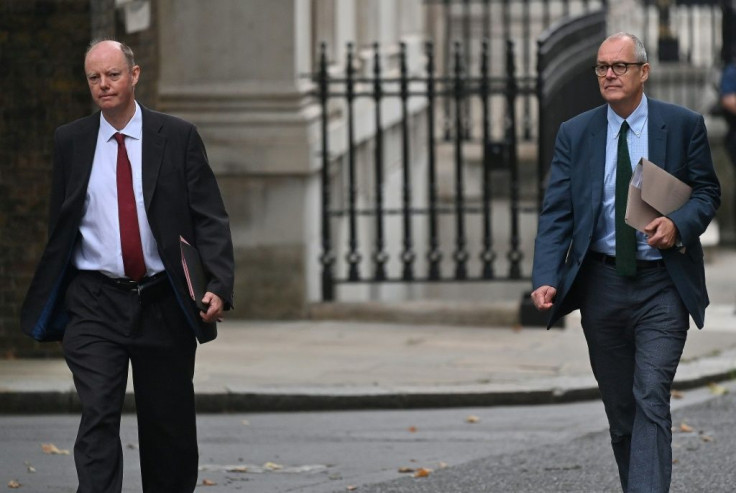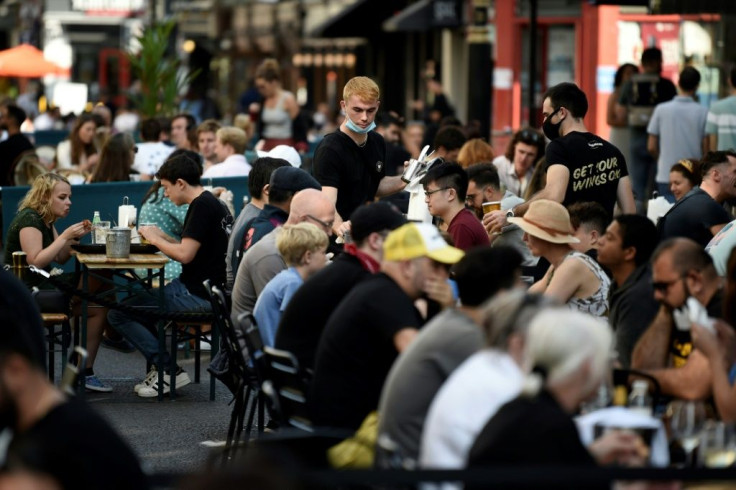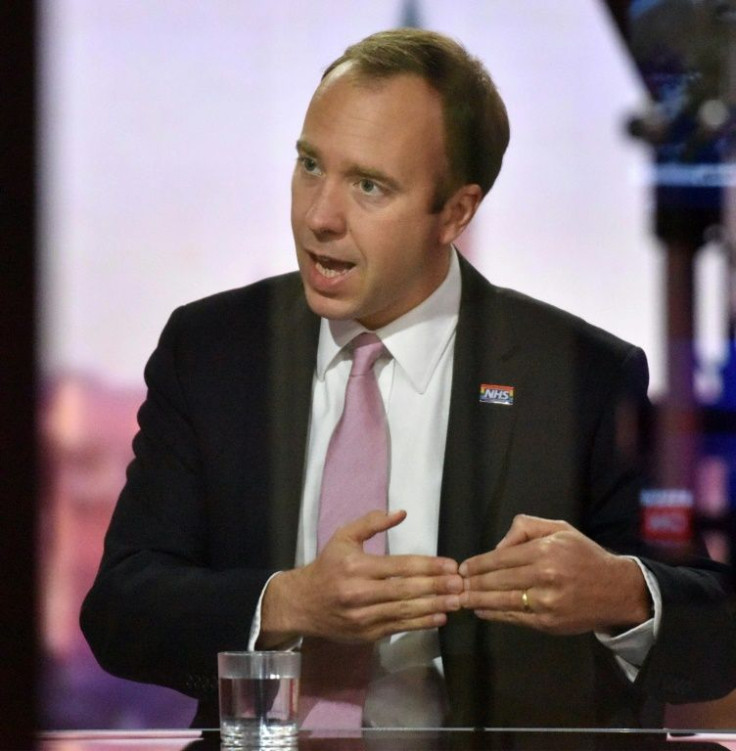UK Steps Up Coronavirus Threat Level After Rise In Cases
The UK government on Monday upgraded its coronavirus alert level, as top advisers warned England could see up to 50,000 cases a day by mid-October and a surging death toll unless action is taken immediately.
Chief medical officer Chris Whitty said rates of infection in England were replicating the strong resurgence seen in France and Spain, roughly doubling every seven days.
"We are seeing a rate of increase across the great majority of the country," he said, urging the public to respect stricter guidelines on social distancing.
"This is not someone else's problem. It's all of our problem."

The government's Joint Biosecurity Centre later changed its Covid-19 alert level from three to four to reflect the increase in cases.
Level three states that a Covid-19 epidemic is in general circulation while level four reflects that "transmission is high or rising exponentially".
Prime Minister Boris Johnson is expected to announce tougher rules on Tuesday to try to flatten the curve going into the winter months when other respiratory infections are typically high.
He called rising infection rates "a cause for great concern".
Steps under consideration reportedly include early closing for pubs in England after widely shared pictures of young revellers out in force in British cities.

"The virus is spreading. We are at a tipping point," Health Secretary Matt Hancock told parliament, adding: "We must all play our part in stopping the spread."
Almost 42,000 people who have tested positive for Covid-19 have died in Britain, the worst death toll from the pandemic in Europe, despite a national lockdown earlier this year that plunged the country into unprecedented recession.
After a summer lull, when the government urged the public to frequent pubs and restaurants to get the economy moving, cases have been rising rapidly to reach some 6,000 daily, according to one government survey.

Johnson last week said Britain was already seeing a second wave of Covid-19 -- in line with parts of Europe -- and new localised restrictions were introduced affecting millions across northwest, northern and central England.
People in England who refuse to self-isolate to stop the spread of coronavirus could face fines of up to ?10,000 ($13,000, 11,000 euros) under tough new regulations.
Johnson said that from September 28, people will be legally obliged to self-isolate if they test positive or are told to by the National Health Service (NHS) tracing programme.
Whitty said it was essential for the public to play its part in preventing the NHS being overwhelmed in the colder months.
"We are in a bad sense literally turning a corner, although only relatively recently. At this point the seasons are against us," he said at the briefing, alongside chief scientific adviser Patrick Vallance.
Vallance said that on current trends, the daily count of cases will reach about 50,000 on October 13, and a month later exceed 200 deaths every day.
Whitty said "science in due course will ride to our rescue" with a successful vaccine but over the next six months, "if we don't change course, the virus will take off".
The UK government in London controls health policy for England but the sector is a devolved issue for the administrations in Scotland, Wales and Northern Ireland.
That has led to differing approaches to tackling the virus, including for quarantine for visitors from overseas.
Johnson's office said he had calls with Sturgeon, and her counterparts in Cardiff and Belfast, and they would all attend another emergency meeting on Tuesday.
"They all agreed to act with a united approach, as much as possible, in the days and weeks ahead," a spokesman said.
The government in Cardiff earlier announced that three more areas of south Wales would be placed under local lockdown.
Meanwhile no two households will be able to mix in Northern Ireland, the province's First Minister Arlene Foster said.
© Copyright AFP {{Year}}. All rights reserved.





















